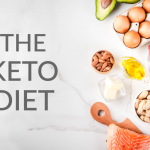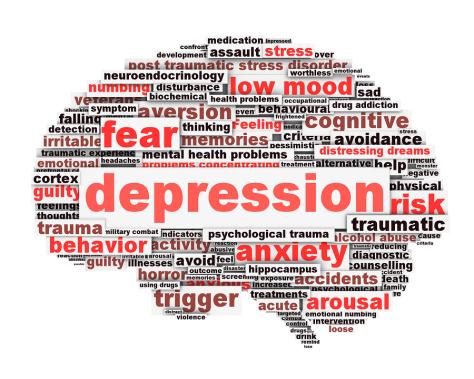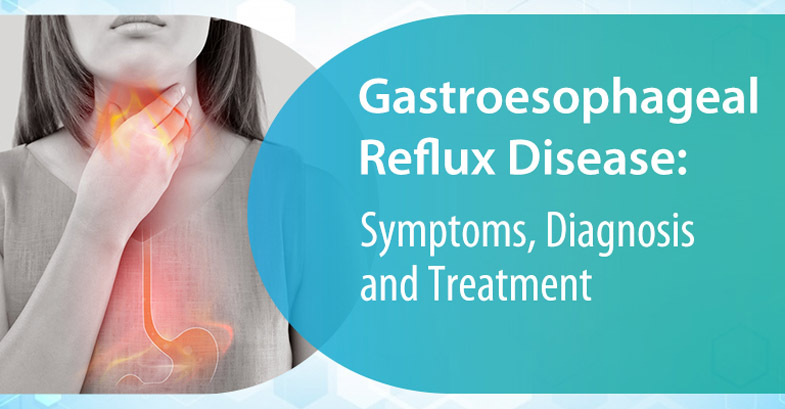There are so many foods that are bad for your brain and your health in general that it’s impossible to list them all, but the following seven items should be avoided as much as possible. These foods can increase your risk of Alzheimer’s disease, interfere with the absorption of nutrients from other foods, and cause serious health problems when eaten frequently.
 If you want to maintain a healthy brain throughout your life, make sure to steer clear of these worst foods for your brain!
If you want to maintain a healthy brain throughout your life, make sure to steer clear of these worst foods for your brain!
Do you drink too much Sugary Drinks?
 Among the sugary drinks are soda, sports drinks, energy drinks, and fruit juices.
Among the sugary drinks are soda, sports drinks, energy drinks, and fruit juices.
Sugary drinks not only expand your waistline and raise your risk of type 2 diabetes and heart disease but also negatively affect your brain. Sugary drinks can increase the risk of type 2 diabetes, which is linked to Alzheimer’s disease. Even those without diabetes can develop dementia with high blood sugar levels. A primary component of many sugary drinks is high-fructose corn syrup (HFCS), which is composed of 55% fructose and 45% glucose.
A high fructose intake may increase the risk of diabetes, high blood pressure, high blood fat levels, obesity, and metabolic syndrome. These conditions may lead to dementia in the long run. Studies have demonstrated that a high fructose intake can result in insulin resistance in the brain, as well as a reduction in brain function, memory, learning, and the formation of brain neurons.
To curb sugar intake, some beverages like water, unsweetened iced tea, vegetable juice, and unsweetened dairy products can be substituted.
Did you know that Processed foods are bad for your brain?
 Sugar added fats, and salt is all common components of highly processed foods.
Sugar added fats, and salt is all common components of highly processed foods.
Foods such as chips, sweets, instant noodles, microwave popcorn, and store-bought sauces are among these.
You’re more likely to gain weight when you consume foods that are high in calories and low in other nutrients. This has a negative effect on your brain health.
A Western diet that is high in processed foods can also negatively affect the brain and lead to degenerative disease. One of the reasons processed foods might negatively impact the brain is because they may cause the reduction of the production of a molecule called brain-derived neurotrophic factor (BDNF). This molecule is found in various parts of the brain, including the hippocampus, and it’s important for long-term memory, learning, and the growth of new neurons. As a result, a cutback in any of these capacities will have a negative impact.
Simply eat healthy things like fresh fruit, vegetables, nuts, seeds, beans, meat, and fish, and also stick to a Mediterranean-style diet to reduce your risk of cognitive decline.
Refined Carbs are not good for healthy brain
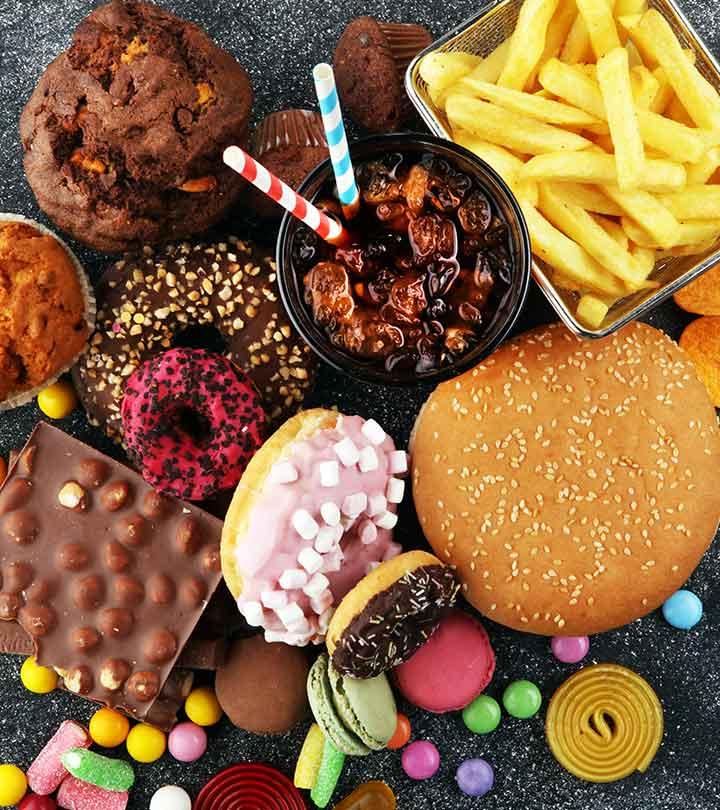 Carbohydrates that have been refined include sugars and highly processed grains, such as white flour.
Carbohydrates that have been refined include sugars and highly processed grains, such as white flour.
These kinds of carbs generally have a high glycemic index, meaning that your body digests them quickly, causing a sharp rise in your blood sugar and insulin levels.
On top of that, consuming these foods in large quantities usually triggers a high glycemic load (GL). GL is the rating that compares the food to others based on their levels of glucose.
Low-GI and low-GL foods are said to have a negative effect on mental acuity.
Research shows that consuming a single meal with a high glycemic load can negatively affect memory in both children and adults.
There is a possibility that this memory effect can be attributed to inflammation of the hippocampus, part of the brain that influences memory, hunger, and fullness signals. It is known that inflammation is a risk factor for neurodegenerative diseases such as Alzheimer’s disease and dementia.
Vegetables, fruits, legumes, and whole grains are healthy, lower-GI carbs. You can use this database to find the GI and GL of common foods.
Avoid Foods that are High in Trans Fats
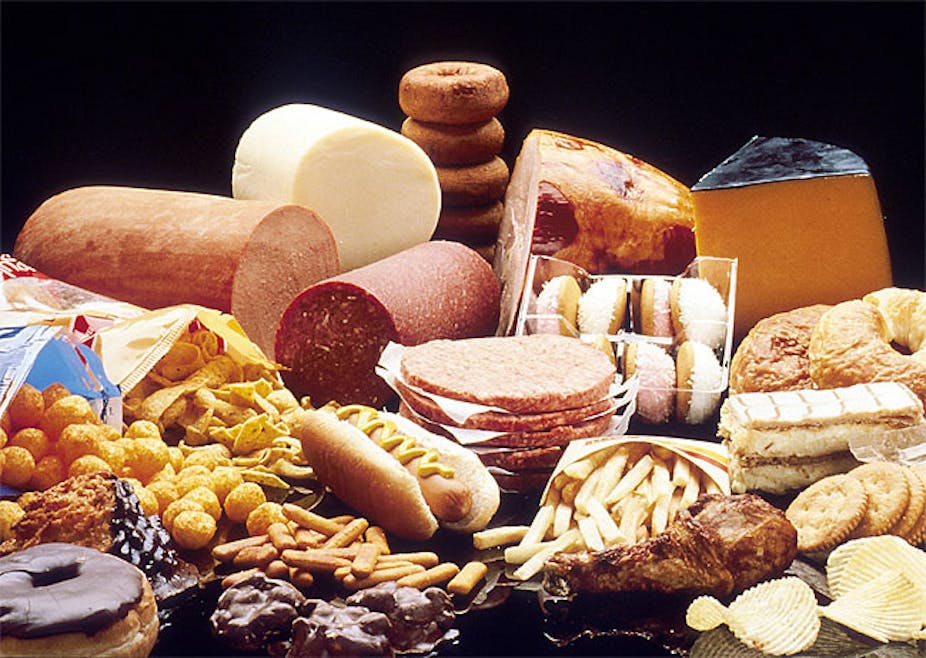 Trans fats are fat that is unsaturated that can be harmful to your brain health.
Trans fats are fat that is unsaturated that can be harmful to your brain health.
Naturally occurring trans fats like those found in meat and dairy products are fine, but artificially-produced trans fats in partially hydrogenated vegetable oils are a concern.
Trans fats can be found in fake butter, imitation frosting, junk food, cake mixes, and cookie mixes.
Research has shown that the more trans fats people consume, the higher their risk is of developing Alzheimer’s and poorer memory.
In spite of this, trans fats should be avoided. They negatively affect many other aspects of health, including heart health and inflammation. Studies have shown that diets rich in omega-3 fatty acids may protect against cognitive decline. Omega-3s are believed to increase the release of anti-inflammatory compounds in the brain and could protect the brain, especially in the elderly.
Omega-3 fatty acids can be increased by eating foods like fish, chia seeds, flax seeds, and walnuts.
Stop consuming Alcohol
 Consuming alcohol excessively can cause major damage to the brain. Regular heavy drinking causes volume reduction, metabolic changes, and alteration of brain chemicals, which allow communication between brain cells.
Consuming alcohol excessively can cause major damage to the brain. Regular heavy drinking causes volume reduction, metabolic changes, and alteration of brain chemicals, which allow communication between brain cells.
Often, those with alcoholism are deficient in vitamin B1. This can lead to a brain disorder called Wernicke’s encephalopathy, which can lead to Korsakoff’s syndrome. Characteristic features of this syndrome include severely damaged brain, resulting in memory loss, disturbed eyesight, confusion, and unsteadiness.
Alcohol consumption can also be harmful to non-alcoholics.
Binge drinking occurs when a person drinks a lot in one sitting. This can cause the brain to interpret emotional cues differently than normal. For example, people have a reduced sensitivity to sad faces and a more sensitive sensitivity to angry faces during these episodes of drinking. The ability to recognize certain emotions seems to decrease the more people drink, and may even cause alcohol-related aggression.
For example, alcohol consumption during pregnancy can have severe effects on the fetus, including developmental disorders like fetal alcohol a young person’s brain is still developing, so alcohol abuse can also be particularly harmful. People who drink alcohol have abnormal brain structure, behavior, and function, compared with those who don’t.
Overall, you should avoid excessive alcohol consumption, especially if you’re a teenager or young adult, and don’t binge drink.




